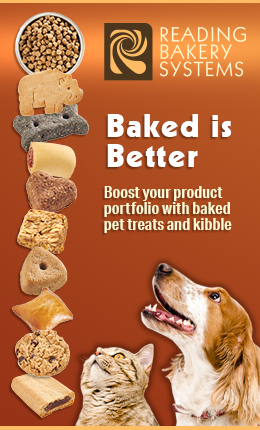The world is battling the novel coronavirus (COVID-19) pandemic and, in the short and long term, the global Animal Feed Industry will soon navigate the fallout.
Animal protein demand
The extent to which COVID-19 will affect animal protein demand and consumption is unknown. On the grocery and retail side, panic buying and hoarding are propelling the sale of frozen foods, canned goods, meat and dairy products, which could be good for some; however, the restaurant and foodservice industries will undoubtedly be hit hard as institutions temporarily close and diners shy away from public spaces.
Regarding consumer confidence in the safety of the food supply, the U.S. Food & Drug Administration (FDA) reports that the new coronavirus cannot be spread through food or packaging.
Supply chain disruptions
Today, analysis of the market impact of COVID-19 is a moving target, but all signs point to an ongoing negative global economic outlook through the first half of the year. The most immediate threat to 'business as usual' in the feed industry lies with supply chain disruptions. While the virus has only begun to impact some regions, down-chain suppliers in key sectors are struggling to meet demand.
This is quickly becoming evident with micro-ingredients, such as vitamins and minerals, e.g. the current shortage of feed-grade L-threonine. The closure of factories and ports would further strain supplies. Meanwhile, the animal feed industry should brace for higher commodity costs due to limited availability and delayed deliveries.
The human element
As business and institution closings become commonplace, what does this mean for livestock and poultry producers and the feed manufacturers they rely on? While some can work remotely, in manufacturing, many cannot. How will feed mills run if the employees are sick or quarantined? What happens to animal production during a lockdown?
Industry event cancellations
Many spring feed industry trade shows and conferences have been canceled or postponed until the later half of the year, e.g. the VICTAM and Animal Health & Nutrition Conference in Bangkok will now be held July 9-11 and the American Feed Industry Association (AFIA) canceled its Purchasing & Ingredients Suppliers Conference (PISC) that would have been held in Seattle in mid-March. The U.S. Poultry and Egg Association (USPOULTRY) has postponed its 2020 Feed Mill Management Seminar, The Pet Food Forum in Kansas moved to August 19-21 , Expo Pet Food in Brazil now will be taking place on July 8-9
Unfortunately, beyond the financial losses and inconvenience, the absence of these events also represent missed business, networking and education opportunities.
Meanwhile, in response to the uncertainty of the state of the pandemic over the next several months, event organizers are entertaining moving or have moved to virtual formats. For example, the Feed Strategy Conference Asia on mitigating swine disease has been canceled and will instead roll out as a three-part webinar series beginning in late April, and Alltech has converted its annual ONE Ideas Conference to a virtual format.
In the face of 2020's black swan, the world's feed industry must be prepared to adapt to weather the unknown.
by Jackie Roembke, Feed Strategy
All Extruded
You could be interested: Greenwashing in pet food: what it is and how to avoid it
































